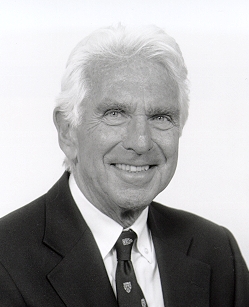Russ Volckmann

Warren Gamaliel Bennis

Russ Volckmann
I met Warren Bennis on Muir Beach in Northern California. It was soon after he had a heart attack. He was trotting in the sand as part of his rehabilitation. Must have been about 1980. I was participating in Will Shutz’s first Human Element training with about 20 other people. We were on a break on the beach and Bennis came along and greeted Will, who then introduced us.
I think of Warren Bennis as a Rennaisance Man of Leadership. Not only did he have an extraordinary academic record, but he also invested himself for a while as the President of the State University of Cincinnati in 1971. He was a professor at USC and affiliated with leadership programs at UCLA and the Kennedy School at Harvard. His consulting was with corporations and presidents of the United States. He wrote and edited many books, including On Becoming a Leader (1989), Visionary Leadership: Creating a Compelling Sense of Direction for Your Organization (1992), Beyond Leadership: Balancing Economics, Ethics and Ecology and Why Leaders Can’t Lead: The Unconscious Conspiracy Continues (1997), Geeks & Geezers: How Era, Values, and Defining Moments Shape Leaders (2002), and Transparency: How Leaders Create a Culture of Candor co-authored with Dan Goleman and Jim O’Toole (2008).
Bennis opened the field of Leadership Studies and the practice of leadership to many influences, including aspects of the work of Ken Wilber. He drew on humanist and systemic ideas about leadership, recognizing that leadership emerged from a dynamic set of relationships and contexts, that leader was a role and that it was continuously emerging. Yet, much of his writing was addressed to those in executive positions in corporations and other organizations, as well as those who sought those positions. Often his language of leadership reflected this focus and it seemed that his broader, more integral, view of leadership got lost in the old paradigm that equates formal authority with leadership. Still, given his many writings on the subject, there are many points and passages that encourage the more integral view. We offer much appreciation to Warren Bennis and how he has enriched our thinking about leadership.
